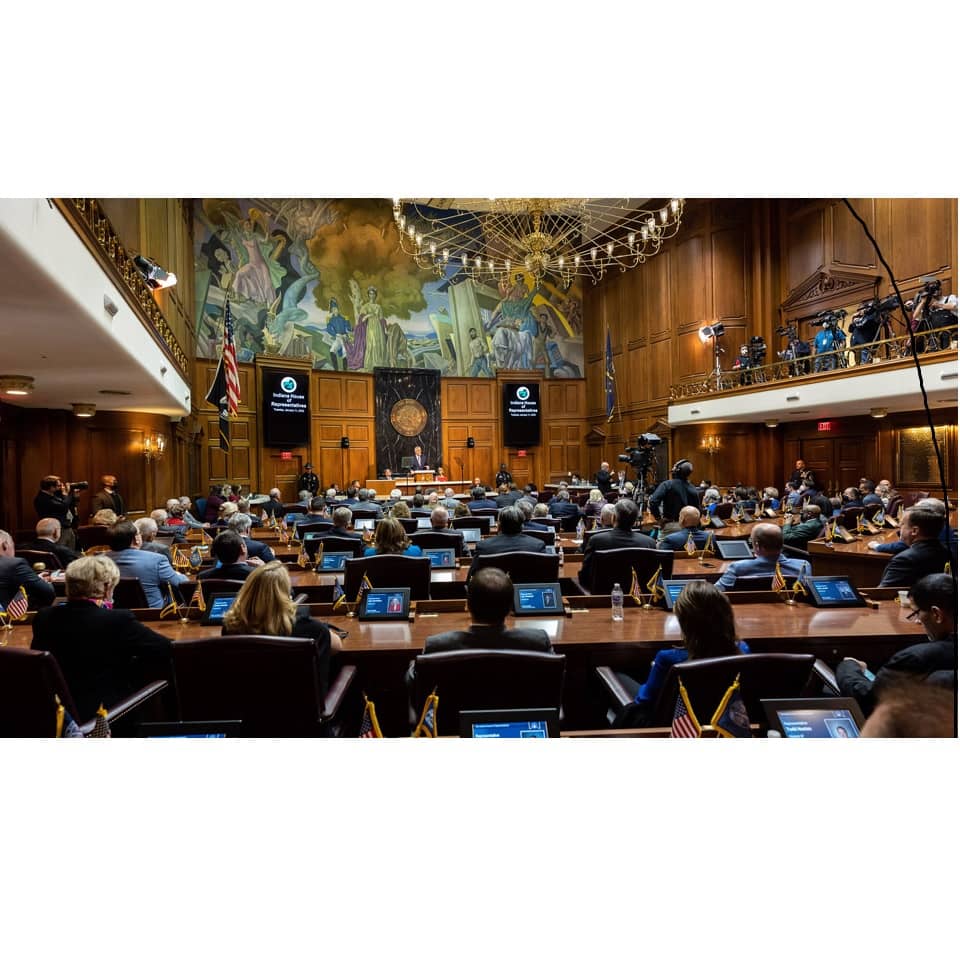
STATEHOUSE — Education was the top topic of discussion at the Indiana Statehouse on Wednesday.
Two bills were up for discussion, one in the House to address educational opportunities for kids to work in the trades, and another in the Senate that would require high school students to graduate with a basic understanding of finances.
The first bill, House Bill 1002, would roll out an career scholarship program that would see high school students see get more hands on learning opportunities through apprenticeships and internships. It’s a bill spearheaded by State Rep. Chuck Goodrich (R-Noblesville).
“Construction is one of the fastest growing industries in the state of Indiana,” said Goodrich. “We are already facing a shortage of workers and we expect over 50-percent of our seasoned workers to retire in the next 15 years.”
Goodrich said that getting “real world learning” will help keep kids in school in order to learn a trade. Through the bill both the school and the institution/business they would send the student too would get money from a career scholarship account to pay for the student to go through an internship of apprenticeship.
It would also require high school students to meet with an employer or labor organization during their final two years of high school.
Some who work in vocational education are skeptical of the bill, like John Hurley who is a teacher of many trades at Rockport High School. He said the bill could undermine vocational schools and high school career centers who already work with outside businesses to get students “real world learning.”
“We work with quite a bit of those trade unions, local employers,” Hurley said. “What we don’t want happening is for us to be competing with them rather than working with them and having the best aspects for students.”
Hurley said vocational schools and career centers are vital to spurring interest in careers in the trades before sending students out into the real world to get further experience.
On that subject, another bill in the State Senate looks to further prepare students for the real world by making sure they have a basic understanding of finances. Senate Bill 35 requires high schools to teach basic personal finance courses and has overwhelming support from Republicans like State Sen. Mike Gaskill (R-Anderson).
Gaskill said that it doesn’t have to be difficult and wants to allow educators the flexibility to create their own curriculum when it comes to finances and that that anyone who teaches in a particular school could teach the course.
“It makes sense to me to allow the flexibility to put additional things into their lesson plan that they think are important,” Gaskill said. “I don’t care who teaches it, just as long as they have an understanding of those concepts.”
If approved by state lawmakers and signed by the governor the finances courses would become a requirement for high school graduation by thr 2024-25 school year.


